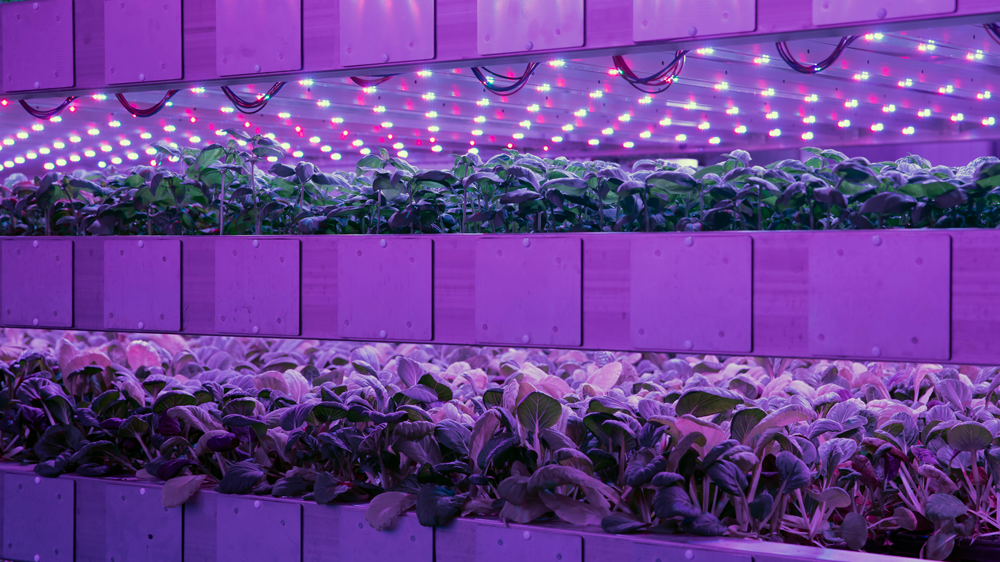

The drivers of agriculture technology, or agri-tech solutions, are multi-faceted.
Large-scale governmental initiatives and commercial advantages such as employment opportunities, as well as globally appealing investment opportunities, mean that scalable agri-tech solutions are attracting increasing attention from major players in this space.
A key regional driver of agri-tech is the UAE, with its progressive and far-sighted leadership that understands the importance of modern technology to sustain long-term food security and become less reliant on food imports.
In line with this, the UAE announced its National Food Security Strategy in 2018, with the vision to become a world-leading hub for innovation-driven food security by 2051. Such governmental initiatives are crucial to drive agri-tech progress throughout the region and beyond.
The Covid-19 pandemic saw the entire world grind to a halt in 2020. The potential effects in terms of supply chain disruptions were an eye-opening experience and prompted many governments to reassess food security strategies.
A majority – nearly 85 per cent – of produce is imported into the GCC and, ordinarily, one-third of food produced spoils or is wasted before it hits consumers' tables. As a result, the added burden of a global pandemic and the inability to control what produce arrives, or when, has resulted in a huge push for smarter food security strategies.
Consequently, the pandemic became a catalyst to implement more sustainable, long-term food security strategies. As an example, International Real Estate Partners' (IREP) subsidiary IREPfarm, which offers combined bespoke food security and real estate solutions, has witnessed an increased interest in agri-tech solutions since the outbreak of the pandemic.
Why do we need agri-tech?
The UAE and the wider GCC region are areas of the world characterised by high temperatures, soil with high salinity, and low annual rainfall.
A key regional driver of agri-tech is the UAE, with its progressive and far-sighted leadership that understands the importance of modern technology to sustain long-term food security and become less reliant on food imports.
The GCC’s dependency on food imports to meet domestic demand makes the region heavily reliant on healthy and uninterrupted supply chains. These can easily become fragile as a result of political and economic instability.
In addition, imported goods reach end-consumers through a long chain of production, packaging, processing, distribution and retail. Each of these touch-points represents a risk for food to be spoilt or even to become contaminated – a hightened risk in times of a global pandemic.
Long term, the most sustainable and lowest-risk option to maintain food security in the region is by increasing local agriculture and production through agri-tech.
Agri-tech solutions also address other regional challenges. Vertical farming is an agri-tech solution that enables production with 90 per cent less water than conventional agriculture, making it highly efficient to produce yield with minimal resources. The controlled environment of vertical farms enables production throughout the year, regardless of season and weather, with optimised conditions for growth.
Paving the way for expansion
With a mandate to become a world leader in innovation-driven food security by 2051, the UAE government is implementing agri-tech solutions across the country in order to achieve its vision. There are already many vertical farms set up across the country, with IREPfarm planning to add an additional five growth towers to this innovative landscape in September.

IREP's end-to-end agri-tech initiative, IREPfarm, will work with its long-standing agri-tech partner, Intelligent Growth Solutions (IGS), which produces indoor growing systems and has provided "growth towers" to firms such as Abu Dhabi's Madar Farms
However, despite strong government backing, education and investment, a few regional challenges still remain, holding back the agri-tech sector.
Limited knowledge of farm management and operations, limited understanding of the commercial supply of farm products, and the need for those wanting to own vertical farms to meet global industry standards, are all obstacles that have to be overcome. It becomes all the more important to nurture local talent by tapping into the knowledge and expertise of international players.
This is an that approach IREPfarm is taking, providing agri-tech businesses with access to data and technology, and the facilitation of a collaborative, streamlined and transparent approach.
It takes two to tango
Businesses, whether they be small or large, require the backing and support of governments; governments, meanwhile, need to have confidence in agri-tech suppliers to pave the way and support businesses that are willing to invest in this space.
Governments are also realising that the benefit of investing in agri-tech solutions positions them to maintain sustainable food security, and reduces future risks of food scarcity.
Limited knowledge of farm management and operations, limited understanding of the commercial supply of farm products, and the need for those wanting to own vertical farms to meet global industry standards, are all obstacles that have to be overcome.
From a commercial perspective, leading regional investment organisations are also seeing the ways in which their backing can not only assist the local ecosystem, but also pave the way for large-scale international investment opportunities.
At the end of the day, consumers want to know – where reasonably possible – what they are consuming, and are demanding access to locally sourced, safe and nutritious produce that is sustainably grown.

You might also like...

Iran-US talks see earnest engagement
27 February 2026

Kuwait receives bids for $400m Subiya utilities plant works
27 February 2026

A partner’s perspective on working with Sharakat
27 February 2026

Egypt’s Obelisk equity move merits attention
27 February 2026
A MEED Subscription...
Subscribe or upgrade your current MEED.com package to support your strategic planning with the MENA region’s best source of business information. Proceed to our online shop below to find out more about the features in each package.
Take advantage of our introductory offers below for new subscribers and purchase your access today! If you are an existing client, please reach out to your account manager.







